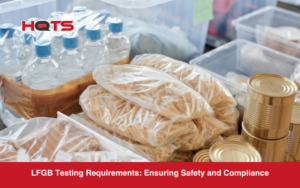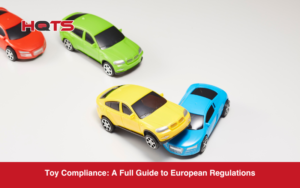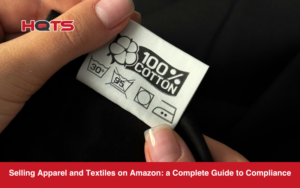When choosing suppliers for any aspect of business, it is important to find the right ones. Many importers choose to work with factories directly instead of finding a middleman or service to not only cut down operational costs but have a direct line to the heart of their supply chain.
But how does a business find a legitimate supplier? This article aims to show this through a China supplier verification audit.
Why is finding the right supplier necessary?
Finding the right supplier is an essential part of any product being successful. Understanding that a supplier can be trusted is essential for several reasons:
- Allows to legally conform to compliances without the additional stress of whether the supplier has fabricated any documents.
- Ensures no wasted resource in procurement if the supplier is then found to be fraudulent mid-production
- Ensures there are no negative connotations with being associated with a fraudulent supplier.
These reasons can already show the importance of being vigilant with choosing suppliers due to the impact it can not only have financially but also on your brand/company’s reputation.
What is a supplier verification audit?
As discussed at the start of this article, a supplier verification audit can be broken down into several parts. This goal is to review legal documentation and general business practices to ensure they are not fraudulent or misleading to organizations.
A third-party supplier verification audit can assist with this by reviewing several factors, which will be explained below:
Third party supplier verification audit
One secure way of ensuring that a supplier is legitimate is by using third-party quality assurance companies to conduct an onsite visit of the supplier. This is especially true if they have previously worked with companies within the international market. The audit consists of creating an audit report looking at previous documents which were legally required to be a supplier to international clients, such as ISO9000 etc.
What specifically goes into a supplier verification audit?
A supplier verification audit goes through several factors which contribute to understanding a supplier’s legitimacy. These can include:
Legal operating status
Inspectors will research the supplier’s background to ensure they are a legally trading business within China. This is named “经营 范围|” a supplier should provide this to verify it is licensed commercially. If the supplier does that provide this, it is a telltale sign that they could be partaking in fraudulent activity.
Factory ownership
Ensuring who the factory owner is also a part of the inspection process; this looks at legal documents to ensure they match up with governmental information allowing for clarity and confirmation that the person in discussions has a connection to the physical factory.
Confirmation of business locations
As well as checking the ownership of the factory/supplier. An inspection will also ensure the locations are correct and where specified; most industries within China have districts such as Shenzen, Shanghai, or Guangzhou where businesses and suppliers conduct their trade. Although there can be rare occasions that factories do not have this common location, it is important to be vigilant in ensuring everything is clear in their documents.
Business size and employee count
As part of their documentation, a detailed account of the size of the business, such as factory numbers, business units, and employee numbers, will also be inspected to ensure that they are not fraudulent or fabrication staff members to make it look bigger. This is an obvious red flag for organizations choosing suppliers as they may need more workforce to complete orders to the requirement needed.
Inspecting the MOQ (minimum order quantity)
As well as checking the legal documentation on if the business is legitimate, an audit will also inspect the MOQ of the supplier. MOQ means minimum order quality and refers to how many orders they supplier will accept before taking an order on, it is common practice for suppliers to only accept larger orders to ensure it is finically viable for them. However, Traders can accept smaller orders (traders being middlemen who buy from suppliers to resell to organizations). An audit will ensure that the supplier has a MOQ to ensure that they are legitimate.
An example of this would be if you want to order 10000 products but want to do a test of 100 products to ensure they are of quality. If they accept that without question, this can raise some potential red flags and give clues as to whether they are a trader and not a supplier.
General production capabilities
Through looking at legal documents, an inspection will also be conducted of the factory of the supplier itself. This reviews the general quality and size of the factory and its equipment to determine how many goods it can produce.
This is important to a supplier audit as if you look to grow or are already in need of a large quantity of goods to fulfill your supply chain. If they cannot meet this demand, it will cause potentially catastrophic issues for your organization’s supply chain later down the line. With delays and monetary issues due to them it.
Additional tips
Although a supplier verification audit is an essential part of setting up new business opportunities with Chinese suppliers, there are additional thoughts that can help in your organization’s north star business plans which should be considered.
Suppliers expertise
Once a supplier verification audit has been completed, the supplier has been deemed legitimate. Is it also important to review what types of products they commonly produce For example, if a supplier has traditionally made clothing such as bags, they may not be fully suited to create electrical products (even if they have the machinery required) because they don’t have the whole experience to create high-quality products. Therefore it may be a risk for your business to not deal with already established factories within the chosen industry.
Always be vigilant
Although a supplier verification audit ensures that a business is legitimate. When dealing with new business partners/suppliers, it is always important to be careful. It is normally common sense. However, if something feels wrong, there is usually something wrong. Always research and be up to date on any changes or check reviews if you feel like something is wrong to ensure your supply chain can be
Conclusion
In conclusion, a supplier verification audit can be a fantastic way to ensure that your business deals with the right suppliers. Ensuring they are a right fit and legitimate in their business dealings. The key message from this article is that if something feels wrong, it is always best to let experts assist and ensure your supply chain runs as smoothly as possible.
HQTS has over 25 years of experience as a 3rd party quality assurance organization, serving various industries and clients, including supplier verification audits. We pride ourselves in high quality, a smooth process that aims to strengthen and smoothen your organization’s supply chain. With our headquarters based in China, we can assist in giving robust and insightful reports on suppliers to ensure they are the right fit for your business needs. Contact us today to find out more.




